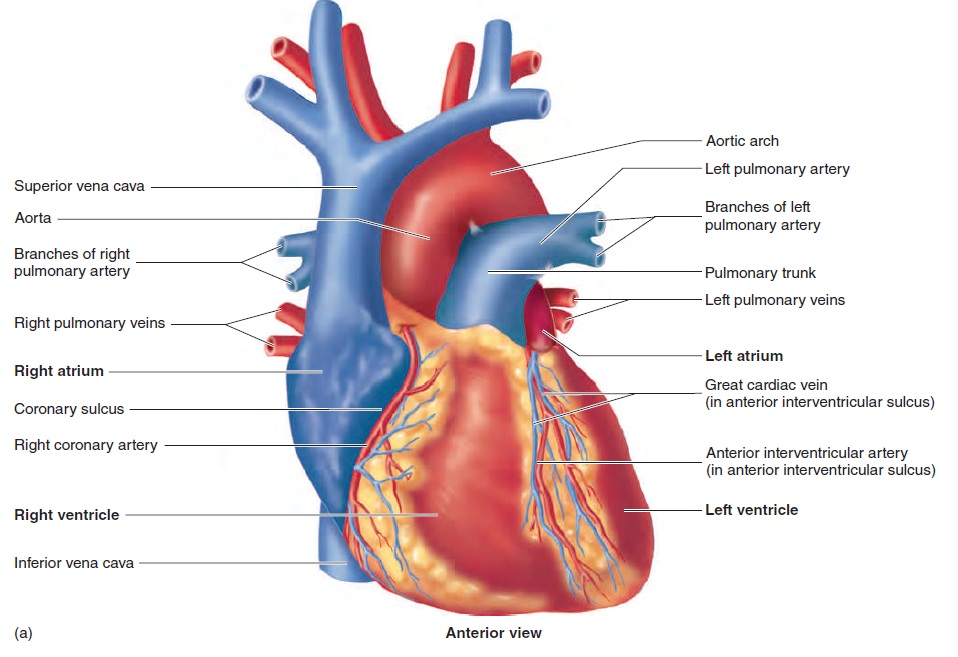Chapter: Essentials of Anatomy and Physiology: Heart
Effects of Aging on the Heart
EFFECTS OF AGING ON THE HEART
Gradual changes in heart function are associated with aging. These changes are minor under resting conditions but become more obvious during exercise and in response to age-related diseases.
By age 70, a person’s cardiac output has probably decreased by approximately one-third. Because of the decrease in the reserve strength of the heart, many elderly people have a limited ability to respond to emergencies, infections, blood loss, or stress.
Hypertrophy (enlargement) of the left ventricle is a common age-related change. This appears to result from a gradual increase in the pressure in the aorta (afterload), against which the left ventricle must pump. The increased aortic pressure results from a gradual decrease in the aorta’s elasticity. Because the left ven-tricle is enlarged, its ability to pump out blood is reduced, which can cause an increase in left atrial pressure and lead to increasedpulmonary edema. Consequently, older people tend to feel out of breath when they exercise strenuously.
Aging cardiac muscle requires a greater amount of time to con-tract and relax. Thus, the maximum heart rate decreases. Both the resting and maximum cardiac output slowly lower as people grow older, and by age 85, the cardiac output has decreased 30–60%.
Age-related changes also affect the connective tissue of the heart valves. The connective tissue becomes less flexible, and cal-cium deposits develop in the valves. As a result, the aortic semilunar valve may become stenosed or incompetent.
An age-related increase in cardiac arrhythmias occurs as a consequence of a decreased number of cardiac cells in the SA node and because of cell replacement in the AV bundle.
Coronary artery disease and heart failure are also age-related. Approximately 10% of elderly people over age 80 have heart failure, and a major contributing factor is coronary heart disease. Advanced age, malnutrition, chronic infections, toxins, severe anemias, hyperthyroidism, and hereditary factors can also lead to heart failure.
Exercise has many beneficial effects on the heart. Regular aerobic exercise improves the heart’s functional capacity at all ages, providing the person has no other conditions that cause the increased workload on the heart to be harmful.

Related Topics